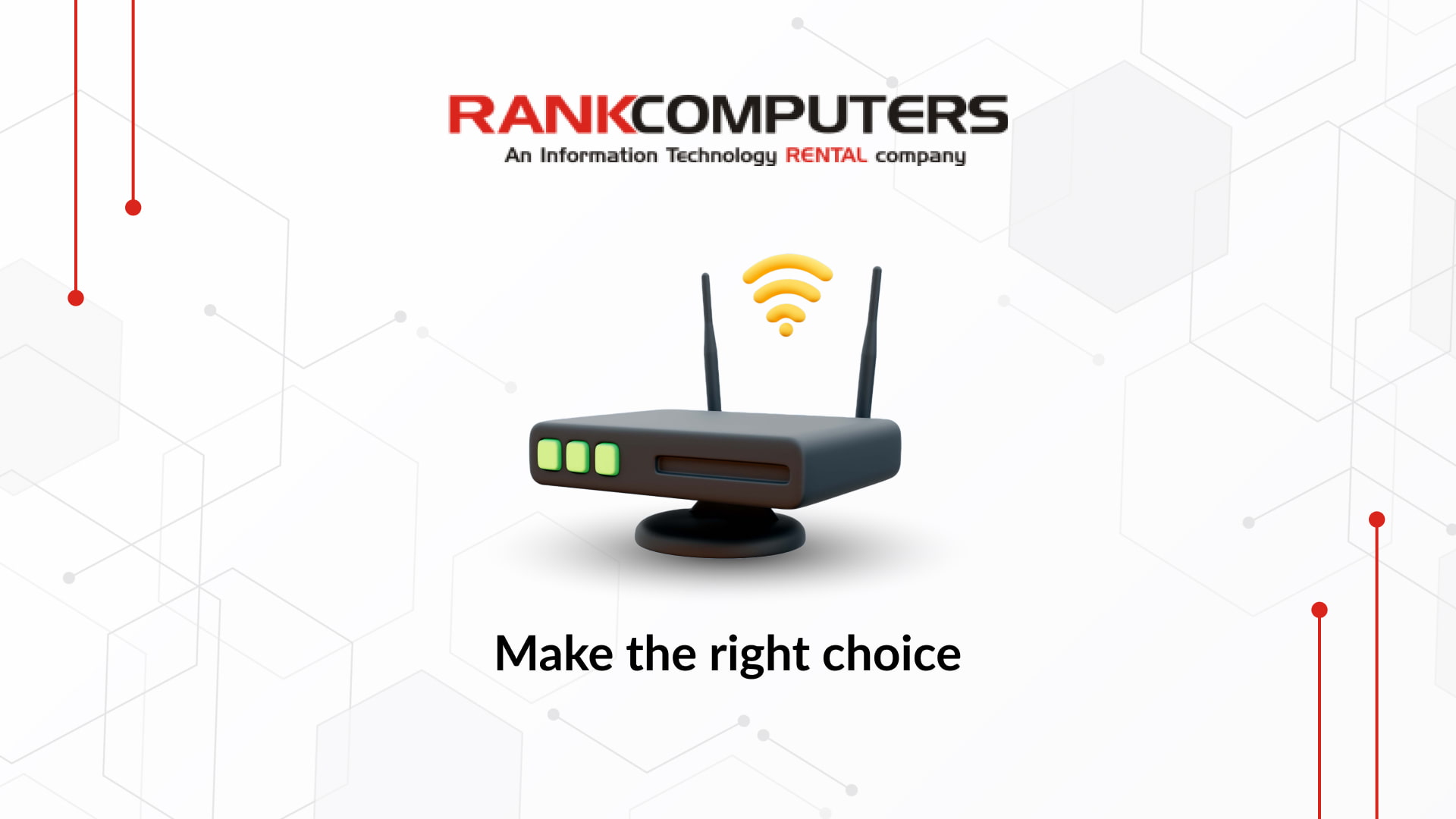In today’s fast-paced business world, a reliable and secure network is essential for success. This is where routers come in! Routers are an integral part of any network, responsible for directing traffic between multiple devices and providing a secure pathway to the internet.
In this blog, we’ll take a look at different types of routers and decide which one is the best business router. So, whether you’re a small business owner looking to improve your network performance or an IT manager responsible for maintaining a large corporate network, this blog is for you. Let’s dive in and explore how to choose the best router for your business!
Types of Routers
Wired Routers: Wired routers typically offer excellent speed and stability, making them a reliable option for businesses with a high volume of network traffic. These are the oldest and most traditional types of routers, connecting devices to the internet via Ethernet cables. This is considered to be one of the best small business routers. A wired router is directly connected to a computer via cable. One port is used to connect a modem to receive internet packets, while the other port connects to the computer to distribute processed internet packets.
Wireless Routers: Wireless routers offer excellent flexibility, allowing devices to connect to the network from anywhere within range, and they’re straightforward to set up and manage. These routers are popular in small businesses and are considered as best small business routers or in homes where only a few devices need to be connected. Wireless routers are the most common type of router in use today, providing convenient Wi-Fi connectivity to devices without the need for cables.
VPN Routers: VPN routers are an excellent choice for businesses that handle sensitive data, such as financial or medical information, and they can be configured to provide access to remote workers. VPN routers are specialized routers that enable businesses to connect to a Virtual Private Network (VPN), providing a secure and private connection between devices. VPN routers offer a convenient way to encrypt all the traffic from your devices without the need for additional software or configuration.
Dual-Band Routers: Dual-band routers operate on two frequencies, 4 GHz and 5 GHz. This allows for more devices to connect to the internet without any drop in speed. These routers are ideal for businesses with multiple devices that require high-speed internet. This is well suited for both large corporations and small businesses. Dual-band routers offer best of the both worlds, allowing devices to connect to the less congested and faster 5GHz band when possible, and switching to the 2.4GHz band when necessary for greater range.
Cloud Routers: Cloud routers offer scalability, flexibility, and cost-effectiveness, making them ideal for businesses that require a high level of agility and responsiveness. A cloud router is a virtual router that is hosted in the cloud. To set up a cloud router, you will need to sign up for a cloud-based platform that provides router management and configuration services.
| Type of Router | Businesses that generally prefer them |
| Wired Routers | Banks, Law firms, Accounting firms, and Manufacturing companies. |
| Wireless Routers | Retail stores, Hotels, Cafes, Schools, etc. |
| VPN Routers | Remote workers, Travelers, Hospitals, Financial institutions, and Educational institutions. |
| Dual-Band Routers | Large offices, Warehouses, Hotels, and Retail stores. |
| Cloud Routers | Software-as-a-Service(SaaS) companies, E-Commerce companies, Media and Entertainment companies. |
If you’re unsure of which router is right for your organization, consider renting network routers from Rank Computers. Competitive prices, a wide range to choose from, and if the router doesn’t fit your needs, you could easily discontinue using it or exchange it for a better one at minimal cost.
Choosing the right router for your business needs:
When it comes to choosing the best business router, there are several factors to consider:
Speed and Performance Capabilities
Of course, one of the most important factors to consider is the speed and performance capabilities of the router. This will ensure that it can handle your company’s bandwidth demands without slowing down or causing disruptions.
Look for routers that support Gigabit Ethernet for faster-wired connections, and choose a device with high-speed Wi-Fi standards, such as Wi-Fi 6 or 802.11ac, for robust wireless performance. Additionally, consider the processor and memory capacity of the router, as these factors directly influence its ability to manage traffic and maintain stability.
Security Features and Protocols
As the gateway to your network, your router should prioritize security. Look for routers with robust firewall features, intrusion detection and prevention systems, and secure remote access options. Additionally, ensure that the router supports the latest encryption protocols for both wired and wireless connections. Selecting a router with these features will help safeguard your data and reduce the risk of cyber threats.
Quality of Service (QoS) and Traffic Prioritization
Routers with Quality of Service (QoS) capabilities can prioritize specific types of traffic, ensuring the most important data reaches its destination without delay. This feature is particularly valuable for businesses that rely heavily on real-time applications, such as VoIP and video conferencing. When choosing a router, ensure it offers configurable QoS settings to tailor the device’s performance to your business’s unique needs.
VPN Support and Remote Access Options
With more employees working remotely, businesses must ensure secure access to company resources from offsite locations. To accomplish this, look for routers that support Virtual Private Networks (VPNs) and offer remote access options. A router with VPN capabilities can create an encrypted connection that allows employees to securely access your network from anywhere.
Advanced Management and Monitoring Features
For businesses with more complex network setups, advanced management and monitoring features can be incredibly valuable. Look for routers that offer features such as VLAN support, SNMP monitoring, and centralized management options. These features can help you better manage your network and troubleshoot any issues that arise more quickly and efficiently.
Scalability and Future-Proofing
Finally, consider the scalability and future-proofing capabilities of the router. As your business grows and your network needs change, you don’t want to have to constantly replace your router. Look for routers that offer modular expansion options, such as additional ports or wireless access points, and ensure that the device is compatible with emerging technologies and standards.
By taking all of these factors into account, you can select the best business router that will not only meet your current needs but also provide the flexibility and scalability to adapt to future changes.
Conclusion
In conclusion, choosing the best small business router is critical for your network infrastructure, but it doesn’t have to be a stressful or expensive process. By partnering with Rank Computers, you can enjoy the benefits of the latest technology and expert technical support, without the hassle and cost of ownership.
Our team of experienced professionals can guide you through the process of selecting the best router for your business needs. With our help, you can build a robust and secure network infrastructure that meets the needs of your business, enhances your productivity, and drives your success. So why wait? Contact Rank Computers today and start your journey towards a better, more efficient network infrastructure.



